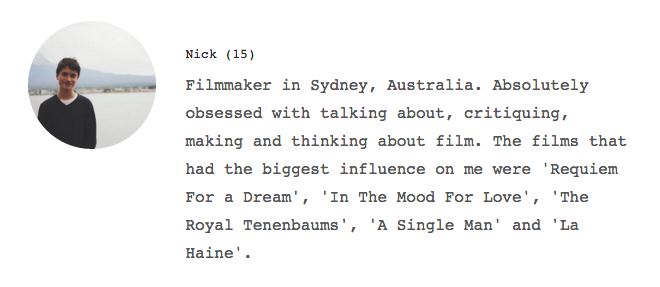by Nick Ward
This year’s Academy Awards started out predictably, with the inevitable Best Director win for Damien Chazelle (La La Land), Best Actor for Casey Affleck (Manchester by the Sea), and so on. When La La Land was announced as Best Picture by Warren Beatty and Faye Dunaway, I couldn’t help but feel a little disappointed. That was, until a few minutes later when it was revealed that Beatty had read the wrong envelope, and that Moonlight was the actual winner of the Best Picture award. I was both overwhelmed with joy, yet left cringing in my seat – such an occurrence has never happened in the history of Oscars. Anyway, I’m writing this article to explain why Moonlight was absolutely deserving of Best Picture.
Moonlight follows Chiron, a young, struggling black man, over the course of his upbringing, as he discovers his own sexuality and true identity. The film is split into three chapters, ‘Little’, ‘Chiron’, and ‘Black’, which are the three different identities he takes on over the course of his life. In each chapter, a different actor plays Chiron, which is symbolic of his change in nature and identity. It was written and directed by Barry Jenkins, who also took away the Best Adapted Screenplay award at the Oscars.
There have been few films which I will call a “transcendent experience” – perhaps Kubrick’s 2001: A Space Odyssey, Lynch’s Mulholland Drive and Wim Wenders’ Wings of Desire. All these films are essentially out-of-body experiences for me – immersive, disarming and riveting. I am more than happy to say that Moonlight is also one of these films. This can be attributed to Barry Jenkins’ immaculate direction, and focus on creating an immersive experience. Jenkins stated that he wanted the audience to be inside the character’s head, and always placed the camera in between the actors in dialogue scenes, to create an almost ‘point-of-view’ effect. He also used high-shutter speeds, experimented with frame rate and tastefully used natural lighting to create a very raw feeling film. That brings me onto the cinematography. James Laxton did an extraordinary job with shooting the film, creating gorgeous images that didn’t feel forced or out of place. The film is shot mostly handheld, with a very shallow depth of field, making the execution of certain shots even more of an achievement and this is not a movie that sacrifices the story for filmmaking’s sake. Overall, all those involved with the technical side of Moonlight all deserve an Oscar, especially Nicolas Britell’s achingly beautiful score, Joi McMillon’s perfect editing and of course Barry Jenkins and James Laxton for their awe-inspiring direction and cinematography.
For some of the other Oscar films (I’m looking at you, Lion and Manchester by the Sea), many scenes were slightly held back weak child acting. It is incredibly hard to find a talented child actor, especially finding them for material such as this. All performances across the board, even down to the extras, are too good to be true. The strength of the acting makes many scenes hard to watch, due to their realism and potency. Mahershala Ali plays Juan, a drug dealer in Chiron’s area, who takes him under his wing. Ali took home the Best Supporting Actor award at most award shows this year, due to the extreme layering, warmth and intelligence he brought to the character. Naomi Harris has possibly the most challenging role in the film, playing Chiron’s mother, who struggles from a horrible drug addiction. She brings such complexity and emotion to the role, and it’s a shame she didn’t get more attention for it. The central actors for the film, who all play Chiron are also fantastic – even Alex Hibbert, a first-time actor that the filmmakers found in Miami. All of the actors have limited dialogue; yet bring so much emotion and depth through their faces, posture and movement. Each actor was cast based on the look that Barry Jenkins saw in their eyes, which Jenkins describes as “windows into the character’s soul”. My favourite performance in the whole film – was that of André Holland, as Kevin. Holland brings this wall of intensity as Kevin; just through the movement of his eyes and his delicate mannerisms. The scenes towards the end of the film involving Kevin and Black are so excellently performed, that I personally forgot I was watching a film.
I’d like to finish off with the importance of Moonlight. When was the last time Western audiences celebrated a black LGBQT+ film? Moonlight presents characters not as stereotypes, or as caricatures, but as layered, complex human beings. Characters don’t appear for one-liners or as clichéd gang leaders – they have sadness in their eyes; aches, and dreams. As much as I love La La Land, it is not a film that is as culturally relevant, or as necessary as Moonlight.
The Academy made a surprising, wise decision to award Moonlight as Best Picture. It is a film that is not only a story of a boy growing up in the ghetto, but also of a young man struggling with his identity – struggling with the fear of his true self. In this age, where masculinity is defined by the world around us, Moonlight suggests that it is important not to conform, and to instead be your true self. I think that it is an essential viewing, and worthy of all the praise and accolades it is given. It’s a film destined to be a classic of American arthouse cinema, to be studied by eager film students all of the world.
This is a film that will not be forgotten.
By Nick Ward, Sydney.

